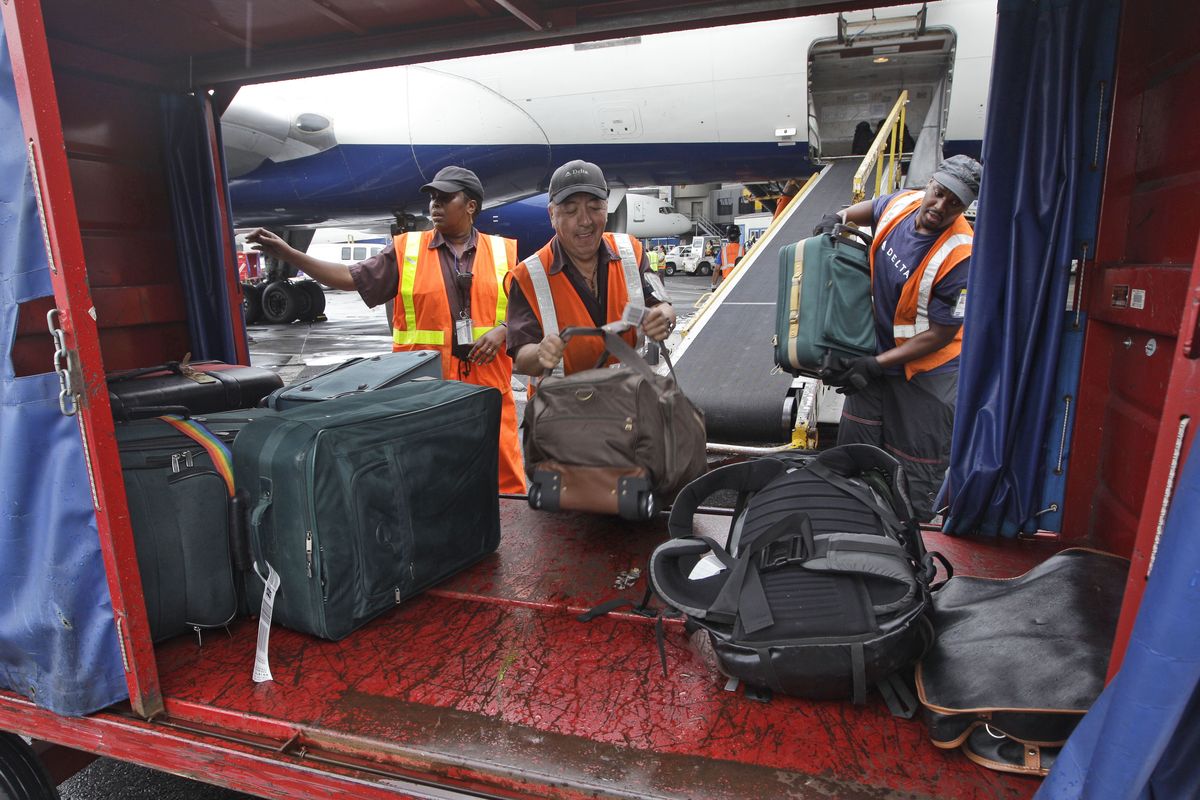Fewer tarmac delays boost airlines’ record
Study shows improvement in baggage handling and arrivals

LOS ANGELES – Complain all you want about full-body searches at the airports, but federal data show that the nation’s biggest airlines are doing a better job of getting you and your luggage to your destination.
In the first six months of the year, the nation’s 15 largest airlines set a record for on-time performance and had new bests for the rates of canceled flights and lost luggage, according to the U.S. Department of Transportation.
What’s behind the improvement? The Transportation Department attributes it to tough government oversight. The airline industry credits the hard work and improved service offered by carriers.
The nation’s largest airlines landed within 15 minutes of their scheduled arrival time 83.7 percent of the time between January and June, surpassing the previous record of 82.8 percent, set in the same period in 2003, according to the Transportation Department.
In the 2012 period, only four flights were delayed on an airport tarmac for more than three hours, compared with 35 delays of more than three hours in the same period in 2011.
Lengthy delays have dramatically dropped since 2010, when the Transportation Department began imposing steep fines on airlines that kept passengers on a delayed flight for more than three hours without giving them the option to return to the terminal.
In the first half of this year, the department said, the airlines lost or damaged luggage at a rate of 2.97 for every 1,000 passengers, surpassing the previous record of 3.60, set in the same period last year.
Despite those numbers, some airline critics say other statistics suggest that the experience of air passengers is not so rosy.
In the U.S., the percentage of seats filled on every plane has increased to the highest rate ever, as airlines reduce the number of flights and pack each cabin to near capacity, according to federal statistics.
Airlines are also collecting record amounts of revenue from fees to check bags, change reservations, upgrade to roomier seats, buy food and drinks and connect on on-board wireless Internet.